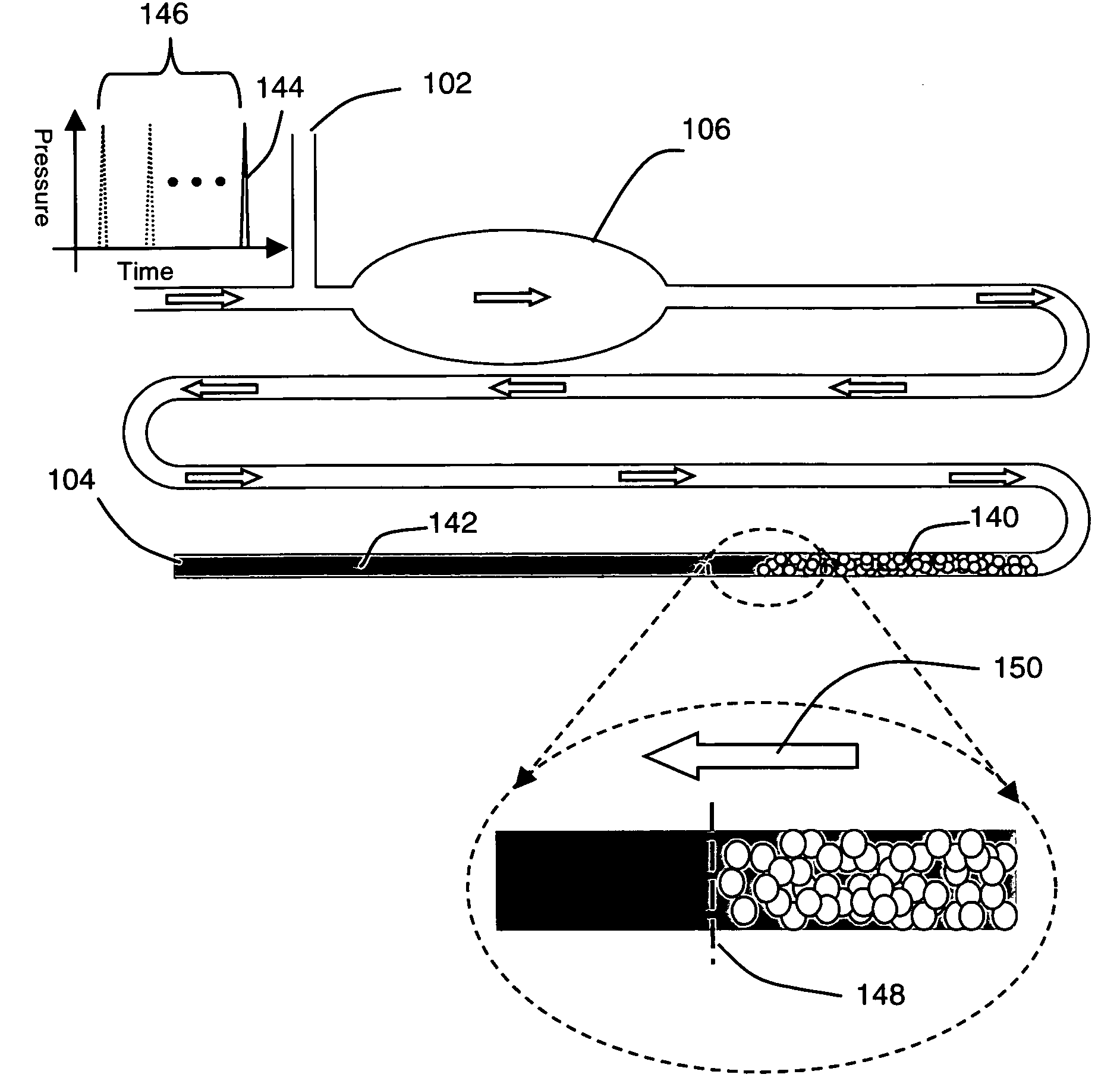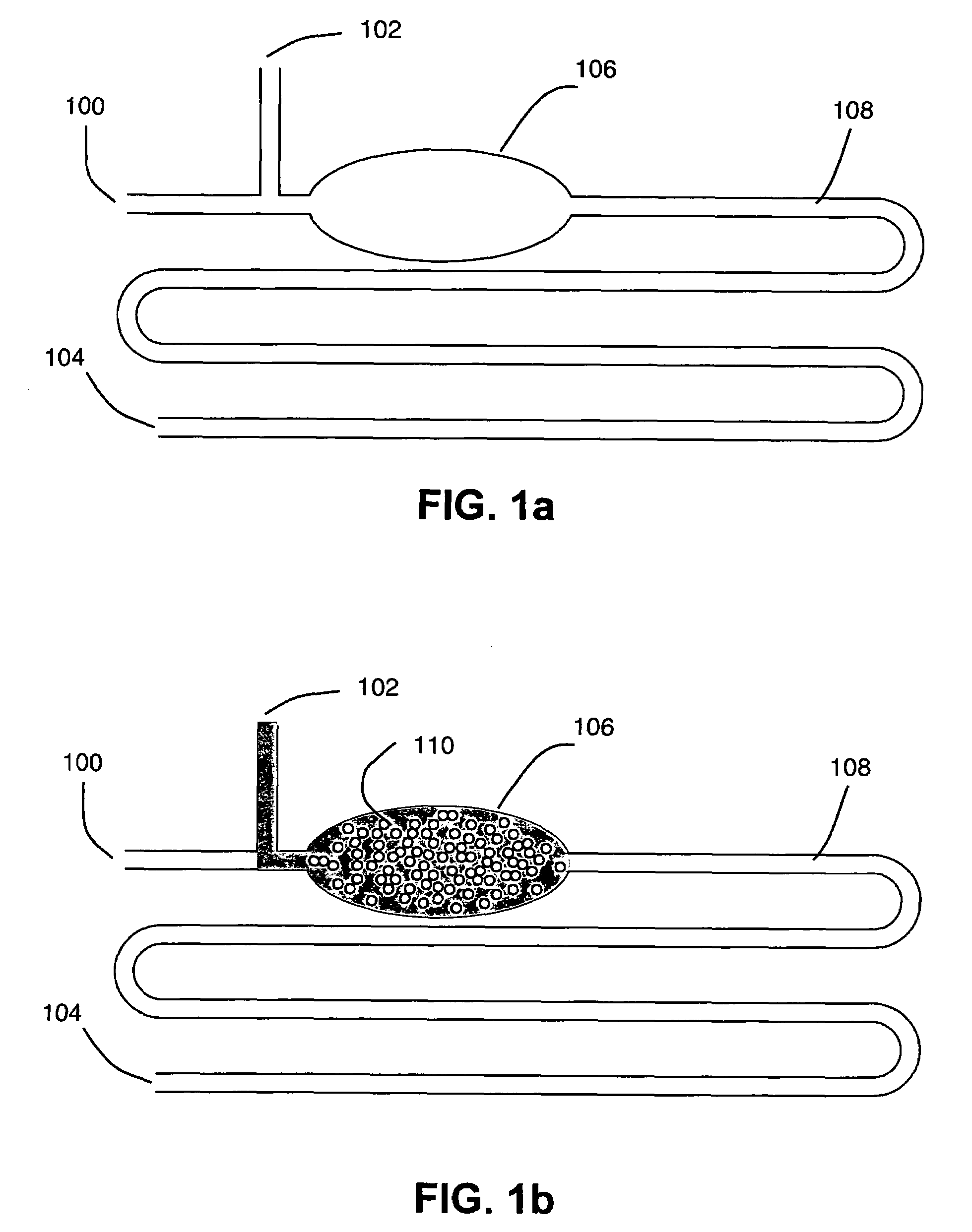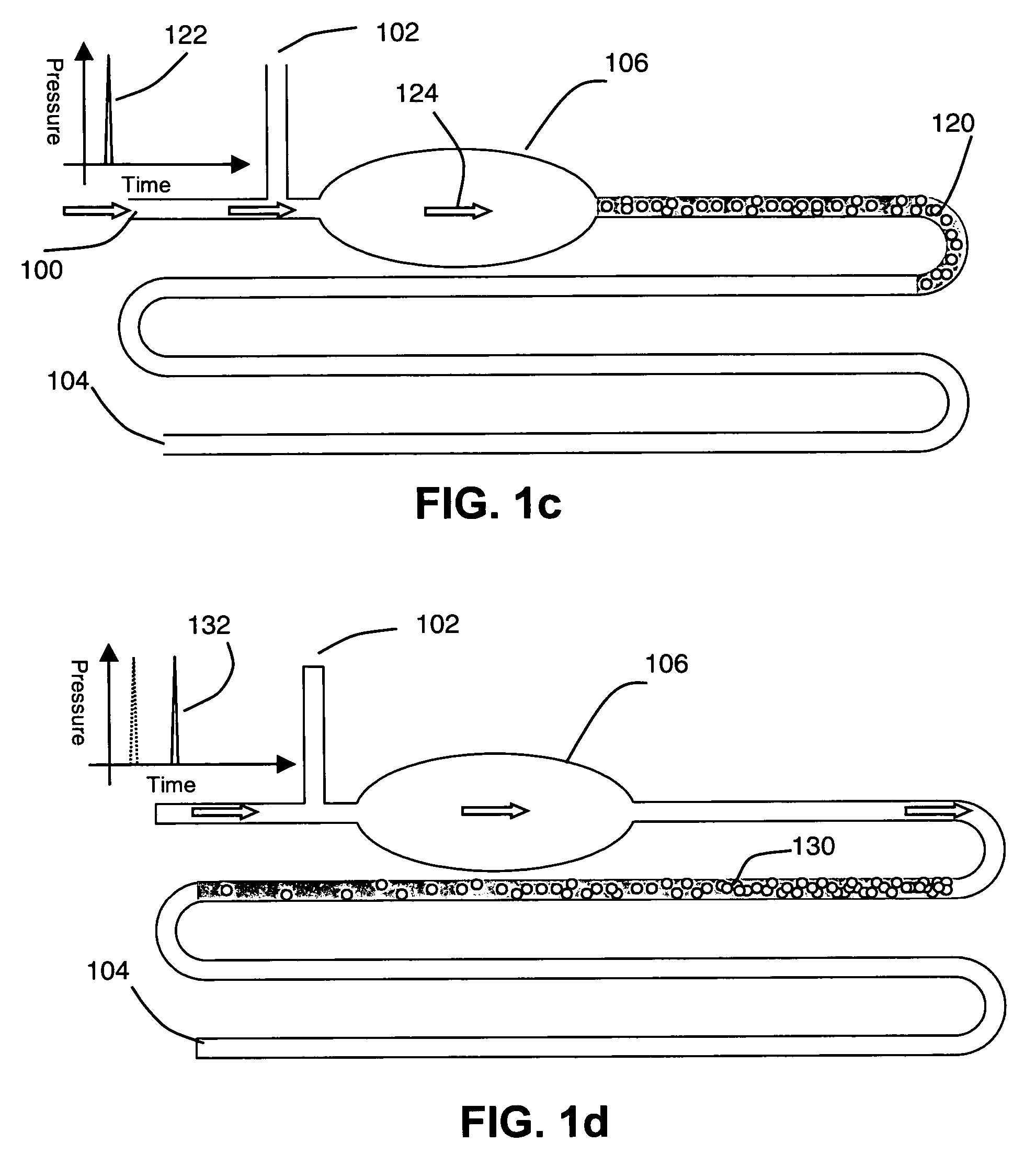On-chip sample preparation for whole blood analysis
a whole blood analysis and sample technology, applied in the field of filterless separation techniques, can solve the problems of increasing reaction time, reducing efficiency, interference during detection, etc., and achieve the effect of convenient fabrication and integration
- Summary
- Abstract
- Description
- Claims
- Application Information
AI Technical Summary
Benefits of technology
Problems solved by technology
Method used
Image
Examples
Embodiment Construction
[0032]Broadly stated, certain embodiments of the present invention provide an on-chip bioparticle separator for an aqueous suspension, by applying a series of pressure pulses. Embodiments of the present invention use a series of pressure pulses for separating bioparticles on demand.
[0033]A key concept disclosed herein is the use of a precisely defined series of pressure pulses to separate bioparticles from biofluid on a biocompatible plastic substrate. When these short-duration, pressure pulses are applied to a plug of biofluid, the viscous drag, inertial force, and shear force on a particle inhibit it from achieving the same velocity as the surrounding liquid. Hence, after a series of pressure pulses, the suspended bioparticles are separated in the rear or the head of the liquid column.
[0034]Definitions
[0035]The term “pressure pulse” as used herein describes a single or plurality of precisely defined changes in pressure over a period of time delivered by the pressure source. The pr...
PUM
| Property | Measurement | Unit |
|---|---|---|
| diameter | aaaaa | aaaaa |
| depths | aaaaa | aaaaa |
| Reynolds number | aaaaa | aaaaa |
Abstract
Description
Claims
Application Information
 Login to View More
Login to View More - R&D
- Intellectual Property
- Life Sciences
- Materials
- Tech Scout
- Unparalleled Data Quality
- Higher Quality Content
- 60% Fewer Hallucinations
Browse by: Latest US Patents, China's latest patents, Technical Efficacy Thesaurus, Application Domain, Technology Topic, Popular Technical Reports.
© 2025 PatSnap. All rights reserved.Legal|Privacy policy|Modern Slavery Act Transparency Statement|Sitemap|About US| Contact US: help@patsnap.com



